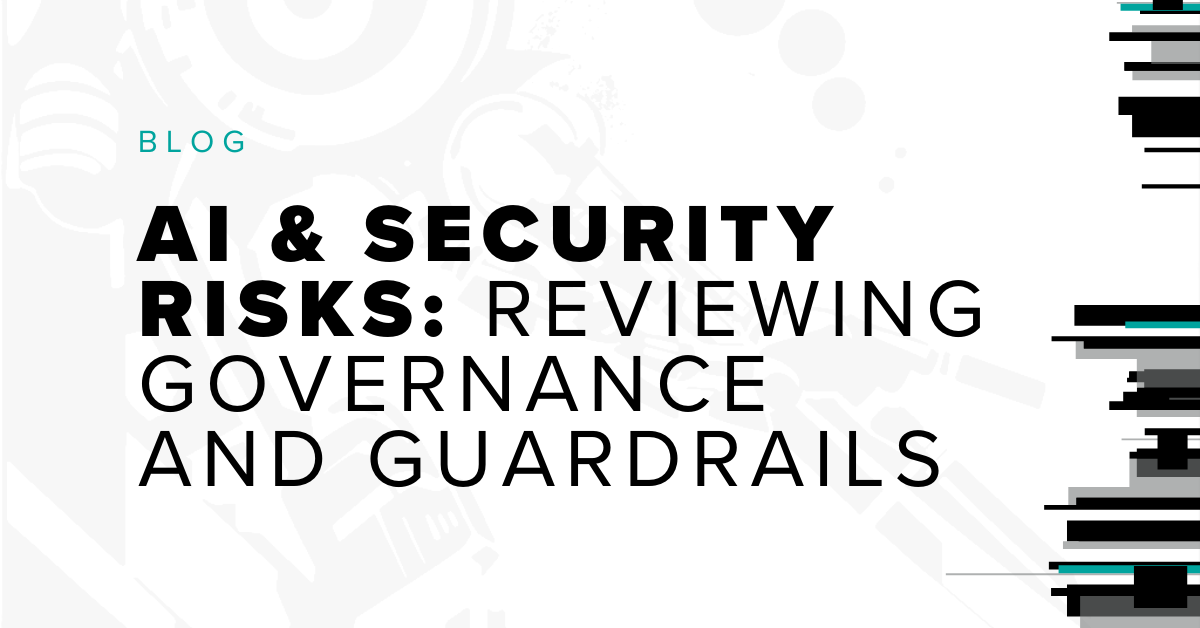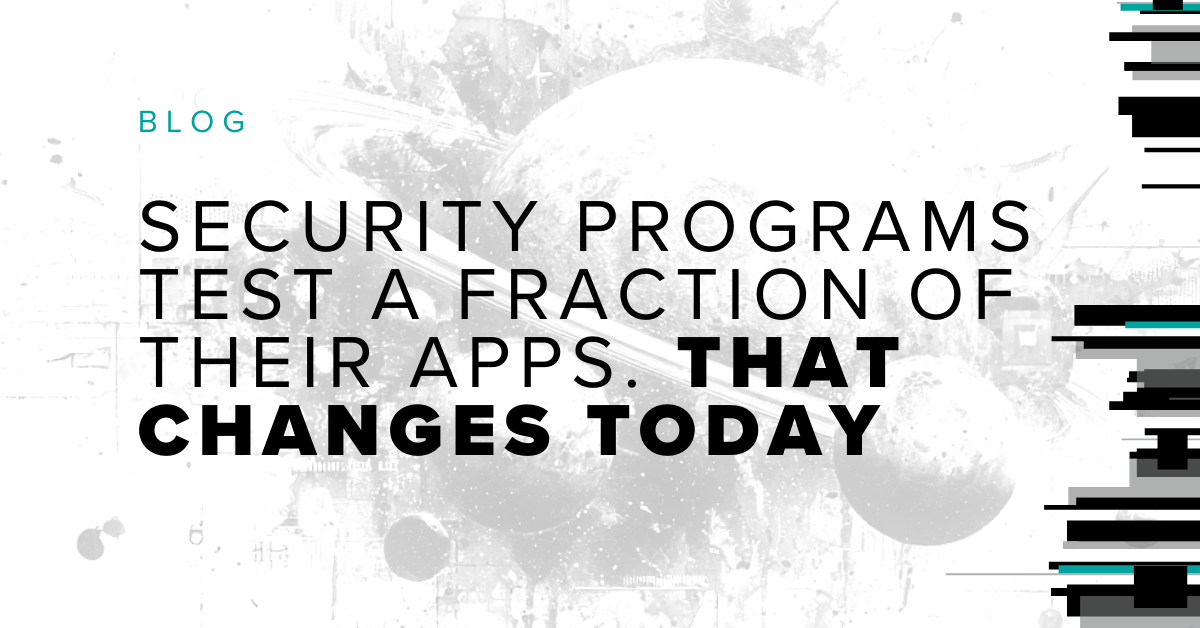Pathways to Security: A Look at University, Military and STEM Programs

Education investments in cybersecurity fields are becoming increasingly popular and accessible as the need to defend forward only continues to grow. With the demand for qualified cybersecurity professionals outweighing supply for several years, there’s never been a better time to start building a career in cybersecurity. In fact, cyber jobs are among the fastest-growing career areas in the U.S., many types of backgrounds are adaptable to the industry's needs, and there are endless specialization areas. As the need for the industry balloons (information security jobs are projected to grow by 33 percent by 2030), upcoming generations may likely see much larger organic growth in the cybersecurity workforce due to expanded science, technology, engineering, and math (STEM) education initiatives in early education.
In this blog, we highlight the different educational and training routes to gain a foothold in the cybersecurity industry no matter where you may be on your professional journey.
Focusing on Higher Education
Over the last few years, higher education institutions quickly took note of the increased interest and demand, with many beginning to offer a wide depth and breadth of cybersecurity degrees and certifications. However, nothing catalyzed the growth in security courses more than the immediate need and increase in remote work and virtual schooling due to the COVID-19 pandemic. This fueled an ‘all hands-on deck’ mentality and budding partnerships bridging the private and public sectors for funding opportunities:
- The IBM Skills Academy offers IT skill-building courses to over 300 schools including Miami-Dade College and San Jose State University in addition to 40 historically Black colleges and universities.
- In early 2021, University of Texas at San Antonio (UTSA) broke ground on a new multi-disciplinary building, thanks to $90 million of funding, co-locating the School of Data Science, the National Security Collaboration Center, and the Cybersecurity Manufacturing Innovation Institute. At this new facility, data science, cybersecurity, and cyber manufacturing education will be merged under one roof.
- California State University San Bernardino’s Cybersecurity Center received a $10.5 million grant in 2020 and was designated as the National Center for Cybersecurity Education by the National Security Agency (NSA) and the U.S. Department of Homeland security (DHS).
Not only do initiatives like these offer specialized education to cybersecurity students, but they can lead to opportunities for internships and security certification training to get your foot in the door at your first professional gig.
Cybersecurity degrees tend to be centered around STEM; however, some liberal arts programs are available that focus on geopolitical implications of cybersecurity policies, for example. Academic cybersecurity programs and degrees cover a wide spectrum of knowledge that prepare for careers such as security analysts, engineers or architects, chief information security officer (CISO), information security consultant, or even threat intelligence analysts; however, this is only a snapshot of potential career opportunities based on university programs.
For students wanting to get into cybersecurity there are many schools to choose from that offer associate, bachelor’s, master’s and doctorate degrees. There are far too many to name here, but we will share a few options. If an associate degree is the right place to start your journey, take a look at your local community college or programs like University of Phoenix, Southern New Hampshire University, and University of Charleston. Ready to take the plunge for a bachelor’s degree? There are too many universities to mention here, but a few virtual options worth noting are Western Governors University and the SANS Institute degree in Applied Cybersecurity. Options for master's degrees are also abundant thanks to the increased demand for cybersecurity professionals. Check out Georgia Tech’s Master’s Degree in Cybersecurity that follows an interdisciplinary curriculum covering subjects like developing awareness to vulnerabilities in computer systems and the constraints and cost of cybercrime and espionage to privacy, technology, and communication.
For mid-career professionals aiming to transition into cybersecurity - don’t worry, it’s not too late! There are many types of education programs just for you. Boot camps via remote instruction, like this one at the University of California Extension program, offer a 24-week curriculum intended for mid-career transitions. Alternatively, a certificate course may be a great introduction with a minimal time commitment. For example, the Harvard Kennedy School offers an in-person or virtual certificate course. This course takes place over five days for a global audience of policy actors and technology experts who are in strategic decision-making roles in both public and private organizations. No computer science background required! Or Stanford University’s Advanced Cybersecurity Certificate, which offers self-paced classes in technical fundamentals, security leadership, and the development of infosec programs. If you need something that is tailored to business leaders and more technology-focused, a Graduate Certificate in Cloud Applications and Information Technology, for example, may be a great fit to boost your career. Are you ready for a bigger commitment and already excelling in professional leadership roles? Consider an Executive MBA with a cybersecurity specialization to help sharpen your security knowledge towards business practices while keeping up with your current role.
For many students, higher education is a major time and money commitment. Here are a few tips and tricks to get the most out of your educational choices:
Do your research! Find the right program for your desired career. Check out the Cyber Career Pathways Tool to help plan your route.
Explore scholarships that guarantee employment after graduation.
Look for programs that have two types of accreditation: institutional and programmatic.
Seek out programs designated in the National Centers for Academic Excellence in Cybersecurity (NCAE-C) managed by the NSA’s National Cryptologic School.
Find curriculums that offer training towards security certificate exams.
Check for a job recruitment program to up your odds of landing a great position post-graduation.
If you are on a technical track, consider programs with labs for hands-on work.
Find a mentor! Check out our recommendations on why and how to find your match.
Dive into books and podcasts to explore different cybersecurity topics.
Fall in Line with a Military Cybersecurity Career
Military service prior to entering the cybersecurity workforce is becoming more common because of the nexus with national security. The military offers world-class training as well as an automatic entry point into the cyber workforce. Not only does the military give you the skill sets to be a cybersecurity professional, but it can also develop attributes that will help you grow and lead in the industry: strategic thinking, problem-solving competency, leadership capabilities, adherence to following protocols, and the ability to work under pressure.
The United States Cyber Command is dedicated to the mission of U.S. national security as it pertains to cyberspace, and it includes the Army, Navy, Air Force, and Marine Corps. All branches, including the Coast Guard, now have cybersecurity roles that can be filled by both enlisted personnel and commissioned officers serving in cybersecurity capacities.
For those looking to combine formal university education with professional military training, U.S. service academies offer degrees for aspiring officers that aim to serve their country in a cybersecurity role. The U.S. Coast Guard Academy has recently joined the ranks by graduating the first class of Cyber Systems majors in 2022. The curriculums for these degrees are designed to build military strength in cyberspace while also meeting the cyber needs of each individual service branch.
The following cybersecurity programs are available at U.S. Service Academies:
- U.S. Military Academy West Point - Cyber Science Major
- U.S. Naval Academy - Cyber Operations Major
- U.S. Air Force Academy - Cyber Science Major
- U.S. Coast Guard Academy - Cyber Systems Major
Military Benefits Accrued = Dream Security Career
Not all service members are assigned to a cybersecurity military role since the needs of the military are vast, but there are several ways to use your accrued benefits to make a career transition into security when the time is right.
The SkillBridge Program is managed by the Department of Defense and connects service members with specific industry training, apprenticeship, or internship opportunities in their final 180 days of service. Check out how our own Fox, Brock Logan, successfully pursued SkillBridge with Bishop Fox and recently transitioned to the civilian workforce.
Interested in applying for a SkillBridge opportunity? Look here to see the list of authorized organizations and other important details that will help you bridge the gap to your civilian security dream career.
Another way to level up your career transition after the military is to use the Post-9/11 GI Bill. The program is an education assistance and job training benefit offered to those that have served on or after September 11, 2001. There are different categories of service that are eligible, so we recommend looking here to review the details.
Post-9/11 GI Bill helps veterans gain education and experience to join the civilian workforce by covering tuition and associated fees, the price of books and supplies, relocation allowances in some cases, and a monthly housing stipend if you are in school more than half-time.
No matter what level of benefits that you qualify for under the Post-9/11 GI Bill, you should be able to get a much-needed head start towards a career in security.
STEM: Cultivating a Cybersecurity Mindset
Without a doubt, getting more young people aware of cybersecurity is essential for our future of defending forward. This starts with increased STEM in primary education programs that focus specifically on coding, cybersecurity, and many other topics. A STEM curriculum that engages students prior to entering college or the military can go a long way in helping create awareness of potential career paths in technology and how cybersecurity impacts our daily lives.
To boost awareness, the United States Congress has declared June as the National Cybersecurity Education Month for grades K-12. The U.S. is also supporting K-12 cybersecurity education with the Cybersecurity Education and Assistance Training Program (CETAP) which provides comprehensive K-12 cybersecurity education training, tools, and resources for both students and teachers. In addition, the Cybersecurity and Infrastructure Security Agency (CISA) partners with nonprofits, middle and high schools, universities, and state school boards across the U.S. to bring cybersecurity curriculum into classrooms. A partnership between CISA and CYBER.ORG has brought cybersecurity education to over 18,000 U.S. teachers impacting three million students in all 50 states and four territories.
The U.S. is not the only nation investing in STEM to support a future cyber workforce. Cisco Canada and STEM Fellowship launched the Cybersecurity Classroom Training Program (CCTP) that aims to engage 40,000 high school students and 2,000 teachers across Canada by 2023. The more that our younger generation learns about cybersecurity, the greater the chance that they will embark on a future path into the industry and fill the workforce gaps.
Starting cybersecurity education at a younger age is a natural addition to STEM curriculums and will only serve to increase the workforce for the future.
Your Future in Cybersecurity Awaits
Building a career in this industry has never been more rewarding and we hope this blog provides you with the resources to find your next (or first) security adventure. The industry’s exceptional growth has opened many different education opportunities and career paths to build the workforce and fill critical gaps. No matter the specialization you follow, there is bound to be a need for your expertise now and in the future. Make the most of your education journey by finding programs that are directly connected to your career, like internships, certifications, and job recruitment, to gain real-world cybersecurity experience as soon as possible. Now is the perfect time to commit and get serious about your cybersecurity career! For more information about opportunities at the Fox Den, visit: www.bishopfox.com/careers.
Subscribe to our blog
Be first to learn about latest tools, advisories, and findings.
Thank You! You have been subscribed.
Recommended Posts
You might be interested in these related posts.

Feb 19, 2026
AI & Security Risks: Reviewing Governance and Guardrails

Feb 09, 2026
Most Security Programs Test a Fraction of Their Applications. That Changes Today.

Feb 04, 2026
Get the Most from Testing Your Applications

Jan 22, 2026
Why the Board Belongs in the War Room: The Untapped Value of Crisis Readiness


